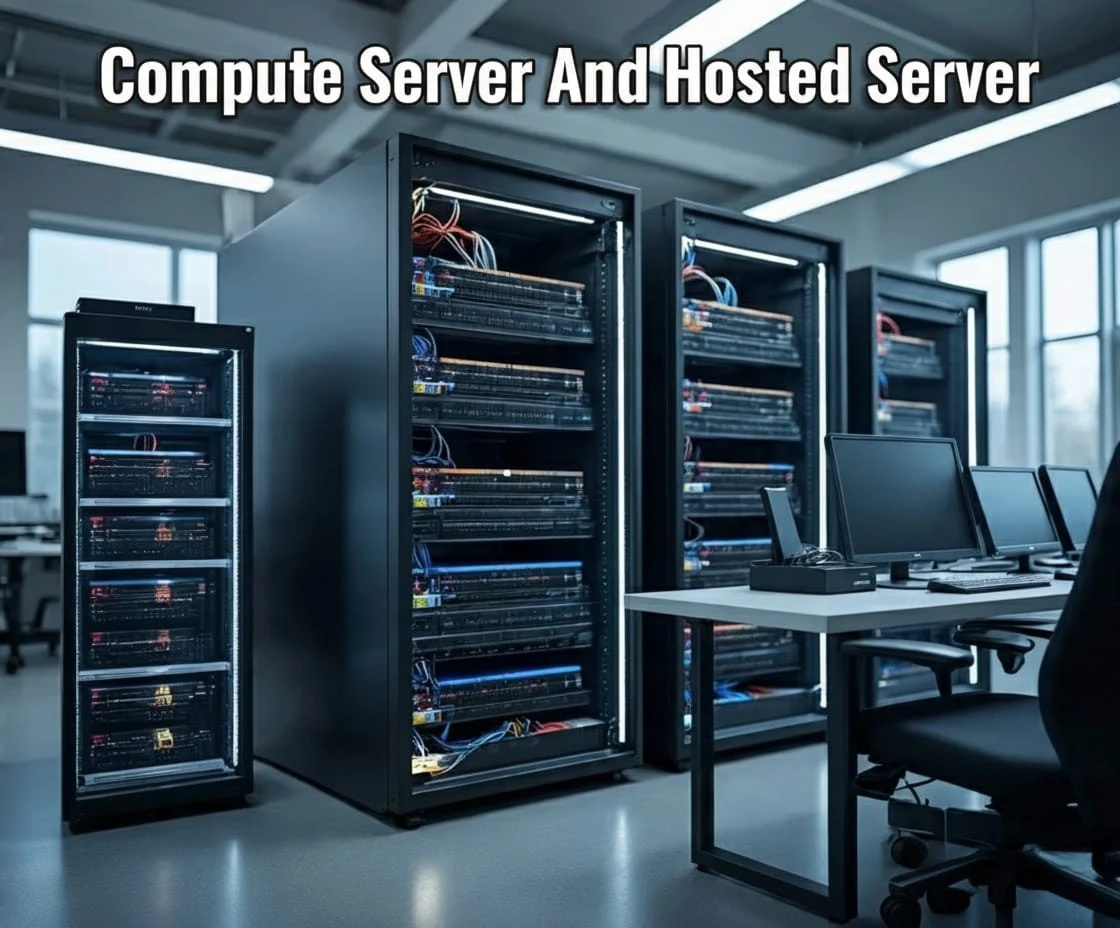New technologies often lead to new definitions and terms to describe emerging technologies. What is a compute server and why is it of interest to businesses, developers, and enthusiasts?
This guide will dissect the rationale of the compute server, its use in today’s digital space, comparisons with hosted servers, and provide a guide to determine the fit of compute servers to your needs.
What Is A Compute Server?
At its most basic, a compute server is a specialized machine, or a virtual workstation, tailored to perform and run specific computational tasks.
Unlike basic desktop computers, compute servers can withstand and manage more strenuous tasks such as data processing, resource-intensive dynamic simulation, and applications. Compute servers form the backbone of the current IT infrastructure, supporting cloud services and scientific research.
Core Compute Server Attributes
- High Performance: Built with robust CPUs, extensive memory, and occasionally GPUs for parallel processing.
- Scalability: Simple to upgrade or cluster to match rising demands.
- Reliability: Use of redundancies and high-end cooling to ensure high availability for long periods of time.
- Remote Accessibility: Reachable and manageable over the internet or a local network.
Why are Compute Servers Necessary?
Statista (2024) points out that the revenue on global servers was over 90 billion, as the need to acquire more computing power grows. Compute servers are the core of:
- Cloud Computing: AWS, Google Cloud, and Microsoft Azure are built on massive computer clusters.
- Artificial Intelligence (AI) and Machine Learning (ML): Training sophisticated models requires extensive computing power.
- Enterprise Applications: From databases to ERP systems, powerful servers will guarantee smooth operations of the business.
- Scientific Research: Simulations, data analysis, and modeling in genomic and climate science.
Computational servers step in whenever the need for dependable and powerful processing and numerous simultaneous operations systems exists.
What is a Hosted Server?
A hosted server is a leased server that is remotely distributed over a data center and managed by a service provider. There are different types of hosted servers.
- Dedicated Hosted Servers: A whole physical server, which is exclusively for one user.
- Virtual Private Servers (VPS): A virtualized segment of a physical server, which is shared among multiple users.
- Managed Hosted Servers: Servers where every aspect is taken care of, including maintenance, security, and updates, are referred to as managed servers.
Applications of Compute Servers in the Real World
Let’s exemplify these concepts with some practical examples.
1. Cloud Gaming: NVIDIA GeForce NOW and similar services use powerful remote computers to stream high-performance games to users around the world.
2. Finance: Banks and trading companies use remote computers to analyze risks during algorithmic trading, which is done in milliseconds.
3. Healthcare: Remote computers analyze massive amounts of health-related data, which is useful in diagnosing health conditions, discovering new drugs, and telemedicine.
4. Education: Research, simulations, and online learning systems in universities use computer clusters.
Transforming Businesses with Remote Computers
Digital transformation is not just a term, but a reality in the globalized world. Remote computers make it possible to provide:
- Accelerated Innovation: Developers can quickly test, implement, and scale applications.
- Work from Anywhere: Companies can control the secure distribution of sensitive data and resources over the internet.
- Smart Decisions: Analytics tools allow organizations to draw intelligent conclusions from large datasets.
According to Gartner, over 80% of companies will implement cloud-based systems to maintain agility in operations and control costs by 2025.
Where To Select the Right Compute Server: What To Think?
With so many computer servers on the market, it may be hard to find the right one. The following checklist may be a useful guide:
- Performance Requirements: Assess your workload. Do you need a powerful CPU or require GPU acceleration?
- Scalability: Do you have any long-term requirements? In that case, choose scalable options.
- Budget: Consider the operational costs that will be incurred in the long run when trying to find a balance on short-term spending.
- Security: especially when it comes to personal or sensitive data, ensure that adequate security measures have been put in place.
- Management: Decide on whether you want to manage the server yourself or prefer a managed or hosted solution.
For the choice whether to use a compute server or a hosted server, your technical expertise, compliance needs, and required flexibility must be taken into account.
Predictions: Compute Servers 2025
There are exciting advancements in compute servers on the horizon.
- Edge Computing: Servers are moving closer to the data source to quickly and efficiently process data to avoid latency.
- AI: Intelligent automation tools are enabling smarter server management.
- Sustainability: Negative environmental impacts are being lessened through green data centers and power-efficient hardware.
The technology leaders, Google, Microsoft, and Amazon, spend billions on advanced computing infrastructure due to the exponential growth of AI, Internet of Things, and immersive technology like the metaverse.
Wrap-Up
In conclusion, a computer server is more than simply hardware; it is the machine that drives innovation, efficiency, and connectivity in the present digital world. Knowing the difference between compute and hosted servers enables business owners, developers, and technology enthusiasts to make better decisions, maximize profits, and stay advantageous in a fast-changing worldwide market.
Understanding the server infrastructure will help you maximize the value of digital transformation. When you are contemplating the upgrade of your IT systems or the decision to move to the cloud, it is time to evaluate your options and invest wisely in the right compute solution that will meet your business needs.

